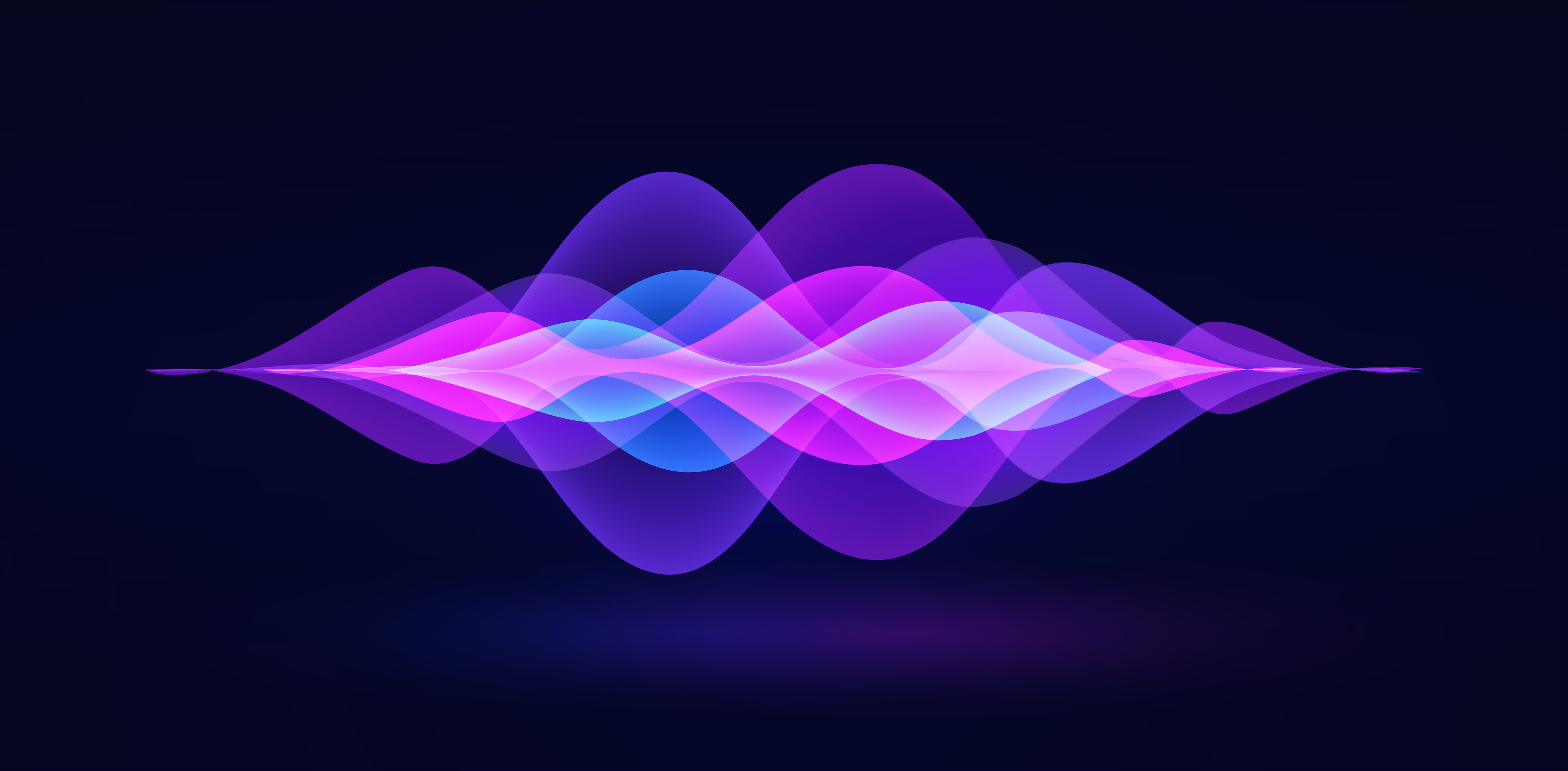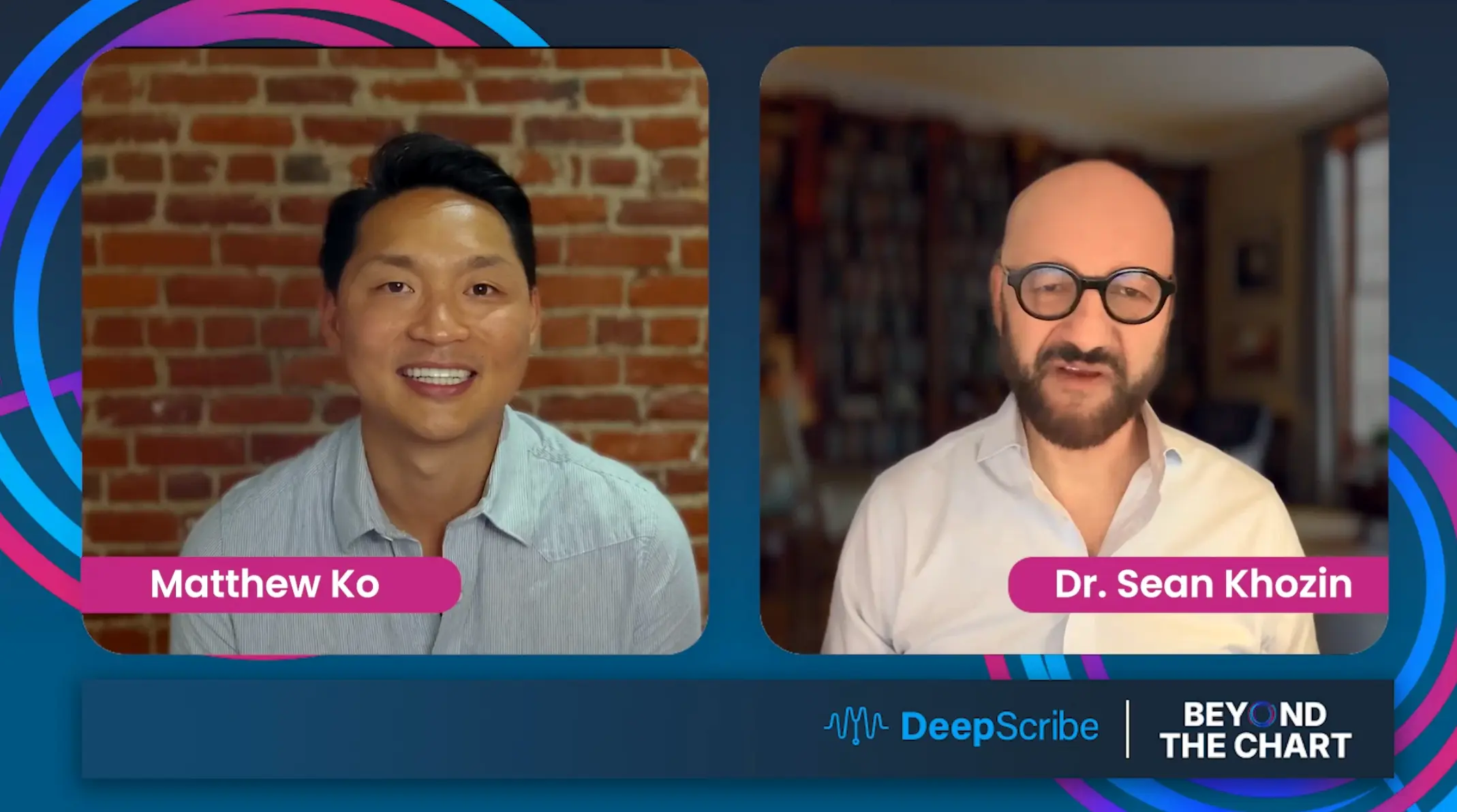From Transcription to AI: The Future of Healthcare Documentation with Voice Recognition Software
As the healthcare industry continues to evolve, the use of voice recognition software is becoming increasingly important. One of the most exciting advancements in this area is the coupling of voice recognition technology with more robust AI systems, allowing clinicians to capture patient visits in real-time and automate their documentation.


The Benefits of Voice Recognition Software in Healthcare
Voice recognition software is revolutionizing the way healthcare professionals manage medical documentation. With its ability to transcribe medical notes and dictations at a rapid pace, voice recognition software is quickly becoming one of the preferred methods for healthcare providers looking to streamline their documentation processes and improve patient care.
In this article, we'll explore the benefits of voice recognition software in healthcare, including:
1. Enhanced accuracy and efficiency in clinical documentation
2. Improved patient experience and communication
3. Increased productivity and reduced administrative burden
4. Enhanced data security and compliance
Additionally, we’ll explore how existing voice recognition software is being integrated with emerging AI technologies to create more robust applications that can significantly enhance clinical efficiency and reduce administrative burdens in healthcare.
Enhanced accuracy and efficiency in clinical documentation
Documentation is a critical aspect of healthcare, and its accuracy and completeness directly affect patient outcomes. In the past, medical professionals have relied on traditional transcription methods, which can be time-consuming and error-prone. Voice recognition software has significantly improved the accuracy and efficiency of clinical documentation by allowing healthcare professionals to dictate notes and have them transcribed in real-time.
Voice recognition software uses natural language processing (NLP) algorithms to convert spoken words into text. This technology allows healthcare providers to dictate patient notes in a conversational tone, which can improve the accuracy and completeness of the notes. Voice recognition software also eliminates the need for manual transcription, reducing the risk of errors and saving time.
Unlike, traditional dictation and transcription solutions which can have longer turnaround times for finished notes, healthcare professionals using voice recognition can easily dictate their notes directly into their electronic health records (EHRs) and watch the appropriate information populate in real time.
Increased Productivity and Reduced Administrative Burden
In addition to improving clinical documentation and efficiency, voice recognition software can also significantly increase productivity and reduce administrative burdens for healthcare providers. The technology enables healthcare professionals to complete documentation faster and with greater accuracy, allowing them to focus more on patient care and less on administrative tasks.
For example, a Yale Medicine study found that voice-recognition software directly connected to the EHR led to a 50% reduction in the time it takes physicians to complete and close encounters. This means healthcare providers can spend less time on documentation and more time on patient care, leading to improved outcomes and a better patient experience.
Furthermore, voice recognition software can be adapted into other elements of practice, helping streamline administrative tasks such as scheduling and appointment reminders. By using voice commands, providers can easily access and update patient schedules, allowing them to manage their time more efficiently.
Overall, the implementation of voice recognition software in healthcare can lead to increased productivity and efficiency, allowing healthcare professionals to focus more on patient care while also reducing administrative burdens.
Improved patient experience and communication
In addition to enhancing clinical efficiency and productivity, voice recognition software can also improve patient experience and communication in healthcare. By reducing charting time and improving clinical efficiency, healthcare providers often have more time to focus on building rapport with the patient during the visit, which ultimately improves communication and overall patient satisfaction.
Voice recognition also enhances communication and collaboration between healthcare providers. By having patient notes available in real-time, providers can quickly access and review patient records without waiting for them to be transcribed or manually entered into the EHR. This helps providers make better-informed decisions faster, which ultimately improves care quality and coordination.
In summary, voice recognition software enables healthcare professionals to spend more time with patients and effectively communicate with them, leading to an overall improved patient experience.
Enhanced Data Security and Compliance
In addition to improving the accuracy and efficiency of clinical documentation and streamlining workflows, voice recognition software can also enhance data security and compliance in healthcare. By using voice recognition software, healthcare providers can reduce the risks associated with traditional manual transcription methods, such as human error, unauthorized access, and data breaches.
Voice recognition software provides an additional layer of security by encrypting the data in transit and at rest. It also allows for multi-factor authentication and ensures that only authorized users have access to patient data. Furthermore, voice recognition software can help healthcare providers maintain compliance with regulatory standards, such as HIPAA, by providing a secure and auditable system for managing patient data.
The Future of Healthcare: Voice Recognition and AI
As the healthcare industry continues to evolve, the use of voice recognition software is becoming increasingly important. One of the most exciting advancements in this area is the coupling of voice recognition technology with more robust AI systems, allowing clinicians to capture patient visits in real-time and automate their documentation. These technologies can also be used to facilitate more accurate diagnoses, improve reimbursement opportunities, reduce clinical burnout, and improve patient satisfaction.
DeepScribe: The World's Most Widely Adopted AI Medical Scribe
DeepScribe is an AI-powered medical scribe that uses advanced technology to automate clinical documentation for healthcare providers. DeepScribe's medical AI software captures natural clinical conversations in real-time using voice recognition and natural language processing (NLP) then uses robust AI models trained on millions of real patient encounters to extract medically relevant information and structure it into a complete medical note. With this more holistic application of voice recognition software and AI, healthcare providers can eliminate manual documentation from their workflows, allowing them to focus on patient care instead of administrative tasks. Additionally, DeepScribe's improved accuracy allows providers to produce more complete documentation, thus improving care efficacy and reimbursement opportunities.
In conclusion, the implementation of voice recognition software in healthcare has numerous benefits, including enhanced documentation accuracy, efficiency, and patient experience while reducing the administrative burden. Despite these benefits, it's becoming clear that coupling voice recognition software with high-powered AI can dramatically increase the practical limits of medical documentation tools in healthcare.
With access to the largest clinical dataset in healthcare and hundreds of clinicians already on the platform, DeepScribe is the world's most widely adopted AI medical scribe and a proven solution to significantly reducing the medical documentation burden. To learn more about how DeepScribe leverages voice recognition technology to transform clinical workflows, reach out to us.
text
Related Stories
Realize the full potential of Healthcare AI with DeepScribe
Explore how DeepScribe’s customizable ambient AI platform can help you save time, improve patient care, and maximize revenue.




